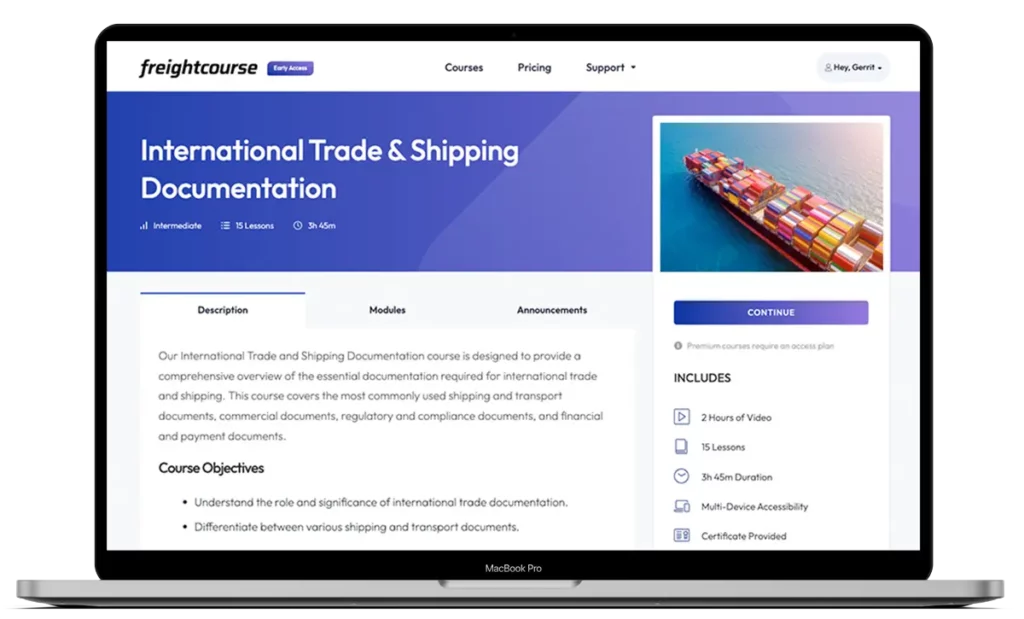Liner terms help to clearly define the responsibilities of shippers, consignees and shipowners. When it comes to shipping break bulk cargo, the shipowner would typically engage into a charter party with the cargo owner, where it will clearly indicate the liner terms such as FIO.
FIO stands for Free In and Out, which means that the shipper is responsible for loading the cargo onto the vessel, the shipowner for the transport and the consignee for the unloading process. Sometimes the shipper may also take the cargo unloading responsibility.
For the FIO shipping term, there are several areas of coverage that are important to take note of.
- Loading (shipper’s responsibility)
- Unloading (consignee’s responsibility)
- Transport (shipowner’s responsibility)
Let’s explore the FIO liner term for break bulk shipments in a little more detail and identify which party is responsible for each activity.
What Does the FIO Shipping Term Cover?
Here is a detailed list of responsibilities between all involved parties. The liner term is always referenced in the charter agreement between the shipowner and the cargo owner.
Shipper Responsibilities:
- Loading – For FIOT shipments, the shipper is responsible for arranging and paying for the equipment and services used to load the bulk cargo into the nominated vessel. They will typically engage the port operator or a vendor for these services.
Shipowner Responsibilities:
- Transport – a shipowner’s obligation is to ensure transportation of the cargo between the port of loading and port of discharge. Before, during and after transit, certain costs may arise such as berthing, pilotage and channel lighting fees. These additional fees are usually paid by the vessel owner under the FIO term, unless otherwise agreed.
Consignee Responsibilities:
- Unloading – Under the FIO term, the consignee is responsible for unloading the bulk cargo from the vessel. Similarly, they usually engage the port operator or a vendor for this service.
How Vessel Demurrage Works With the FIO Shipping Term
Demurrage clauses are generally captured in the charter party or follow the general practices of the liner term. Bulk cargo moving under the FIO term has a certain laytime in which the shipper is required to complete the cargo loading process.
Failing to keep within the laytime will incur vessel demurrage, which must be paid by the shipper to the shipowner. Vessel demurrage is usually charged by the hour.
Lastly, if specified and agreed upon by all parties, if the loading activities are completed within the laytime, a despatch fee may be collected from the shipowner, as they have to outlay less berthing fees to the port.

Get Free Course Access
If you enjoyed the article, don’t miss out on our free supply chain courses that help you stay ahead in your industry.

Gerrit Poel
Co-Founder & Writer
at freightcourse
About the Author
Gerrit is a certified international supply chain management professional with 16 years of industry experience, having worked for one of the largest global freight forwarders.
As the co-founder of freightcourse, he’s committed to his passion for serving as a source of education and information on various supply chain topics.
Follow us